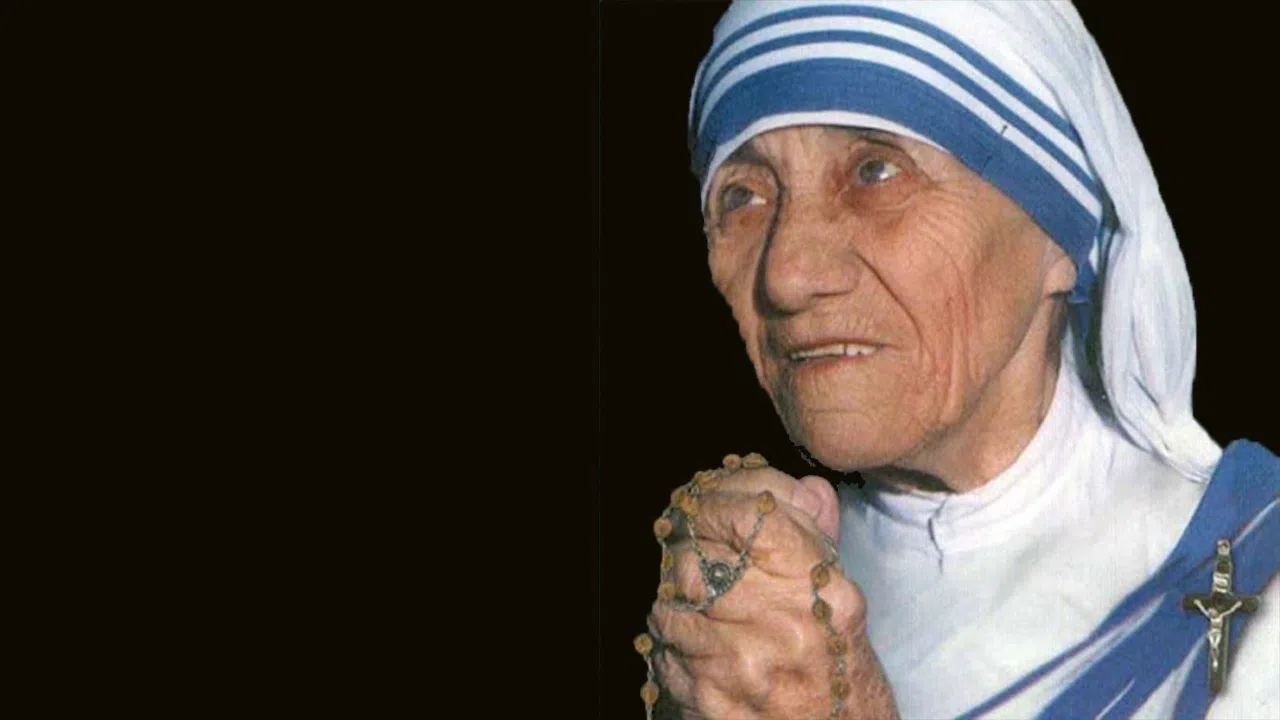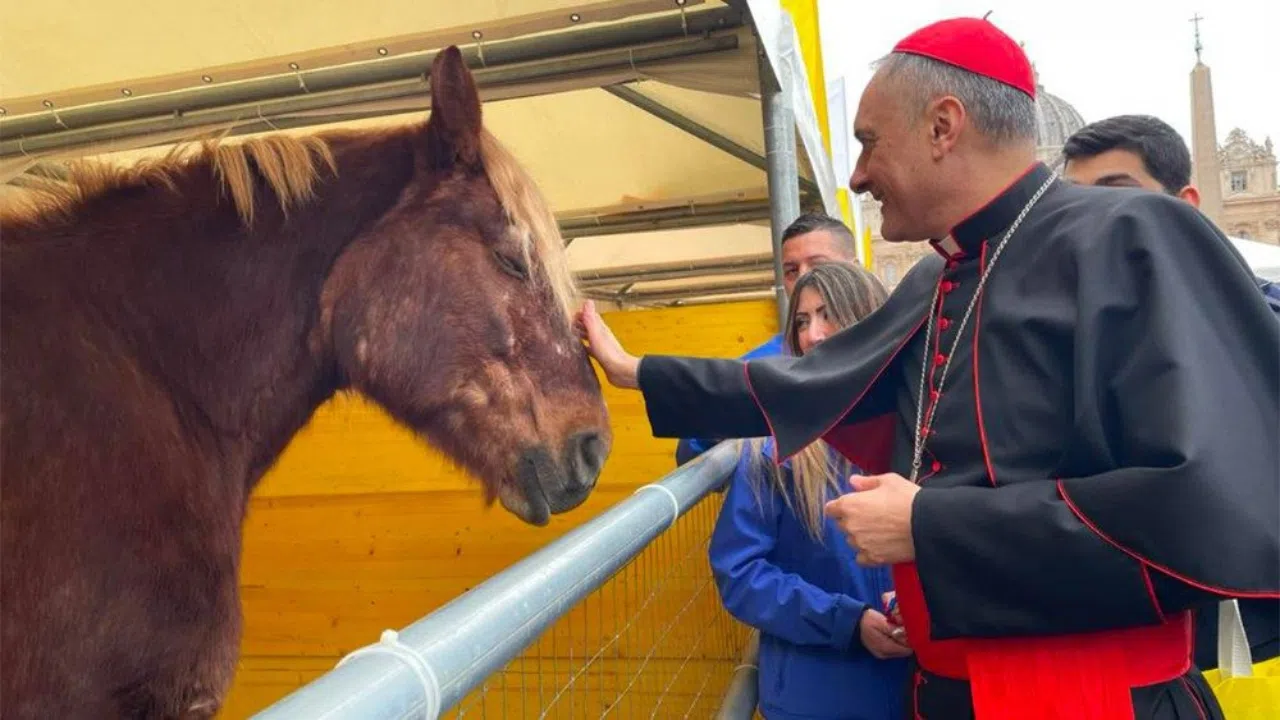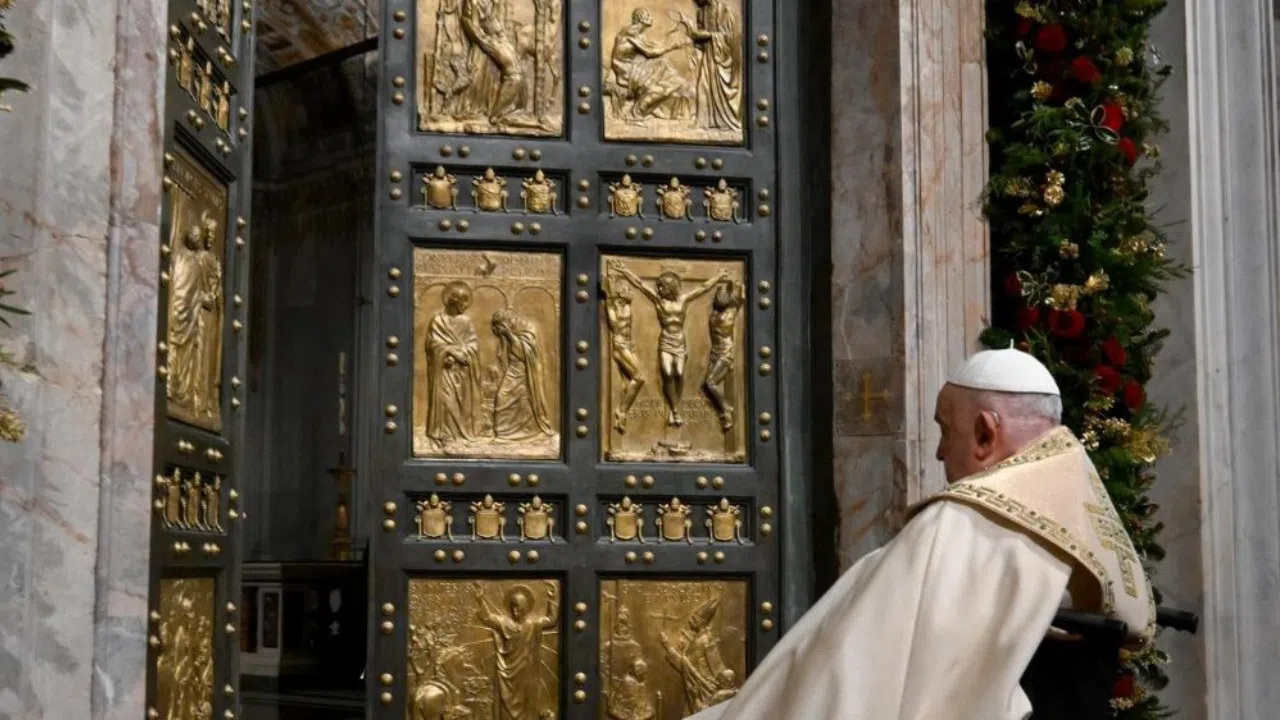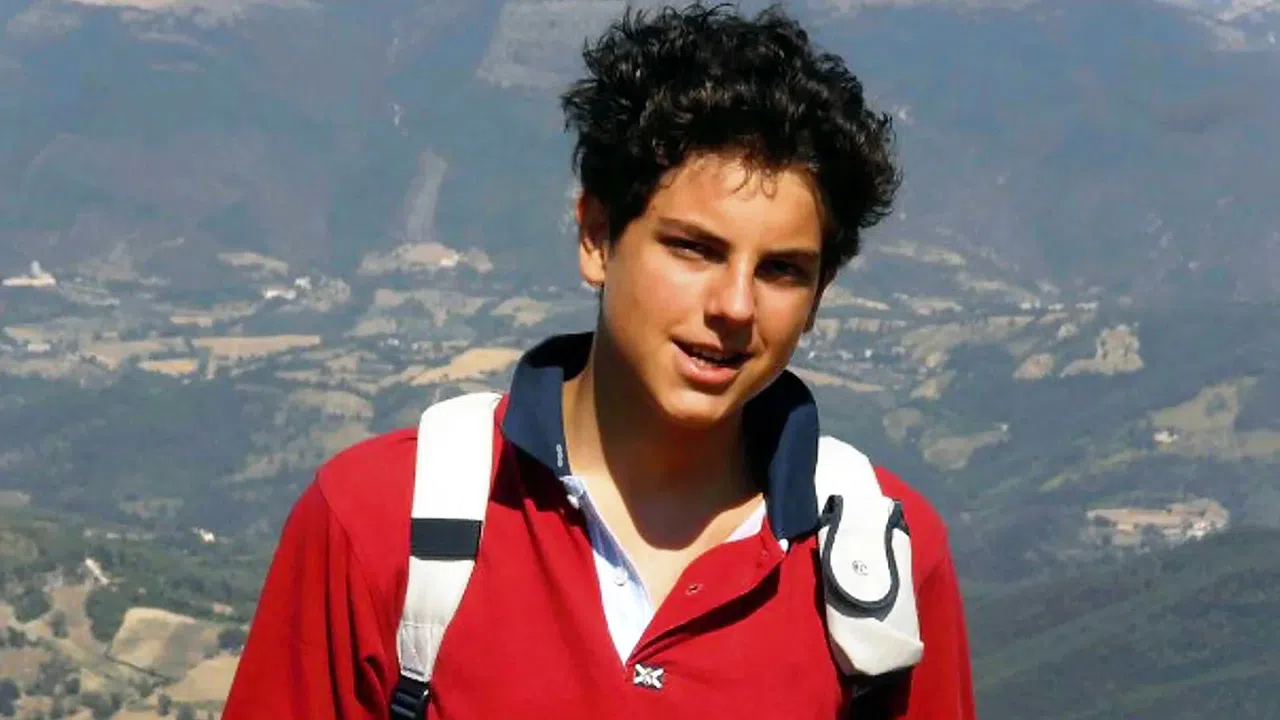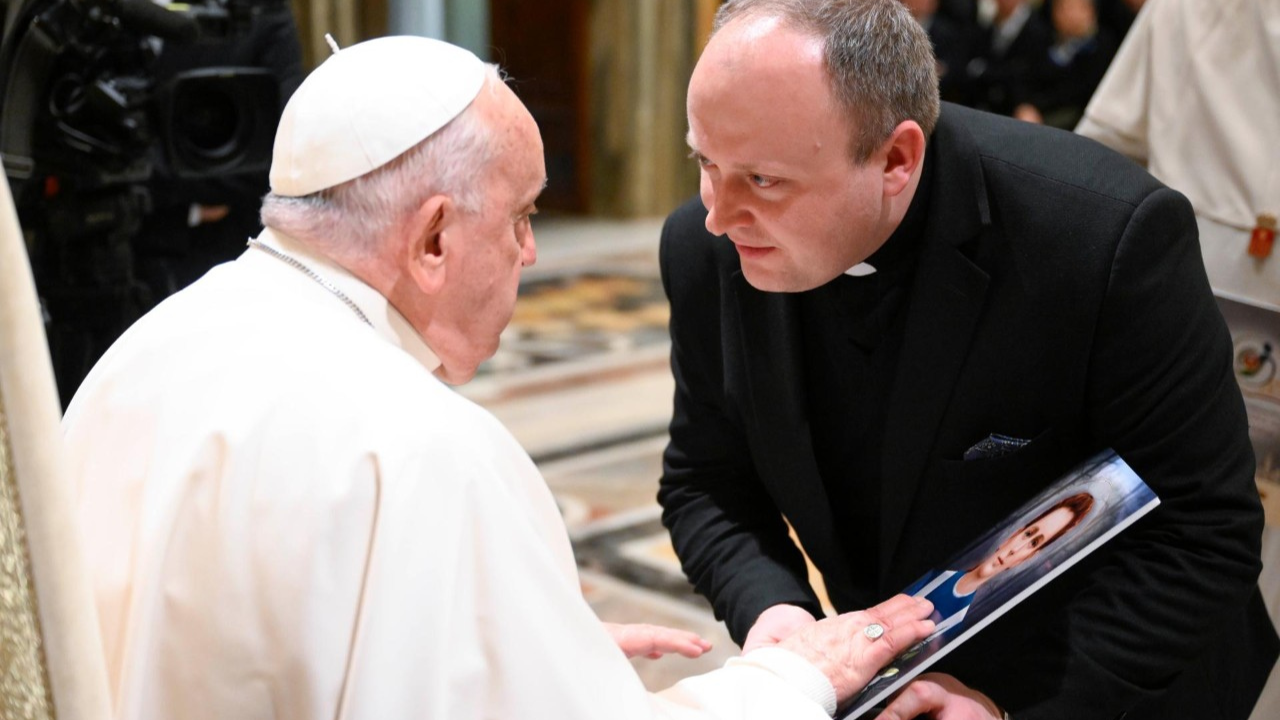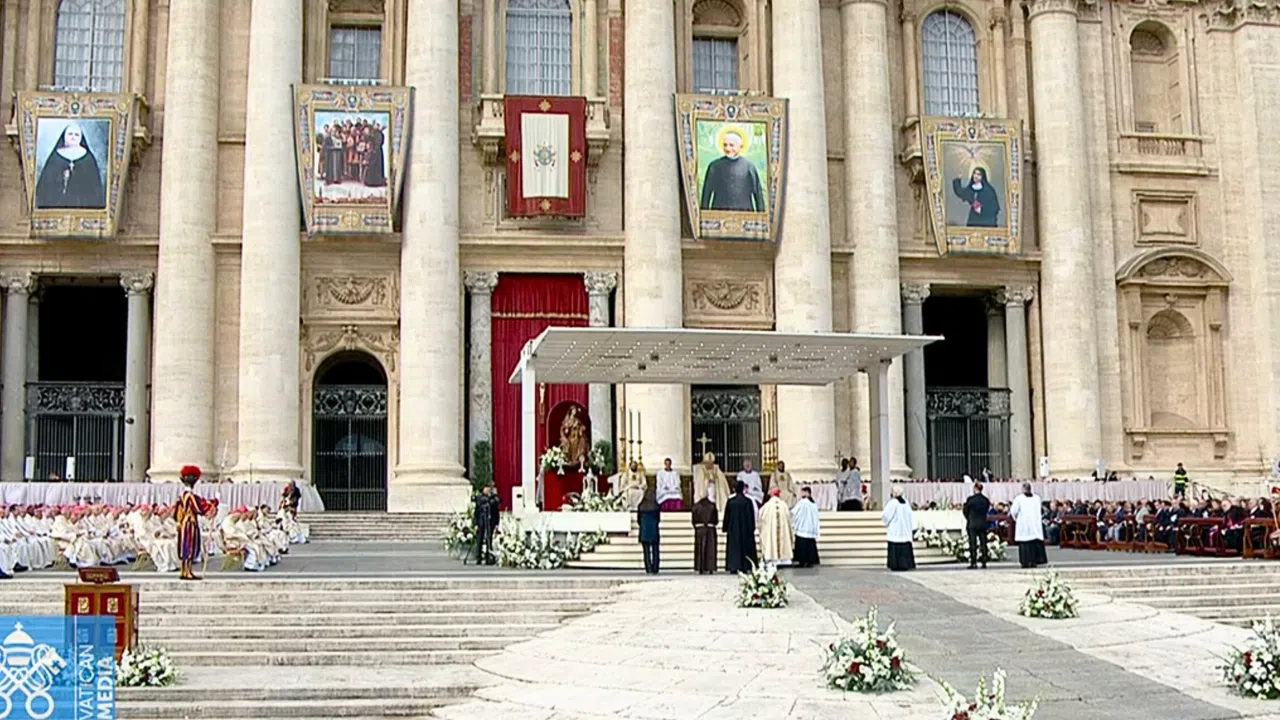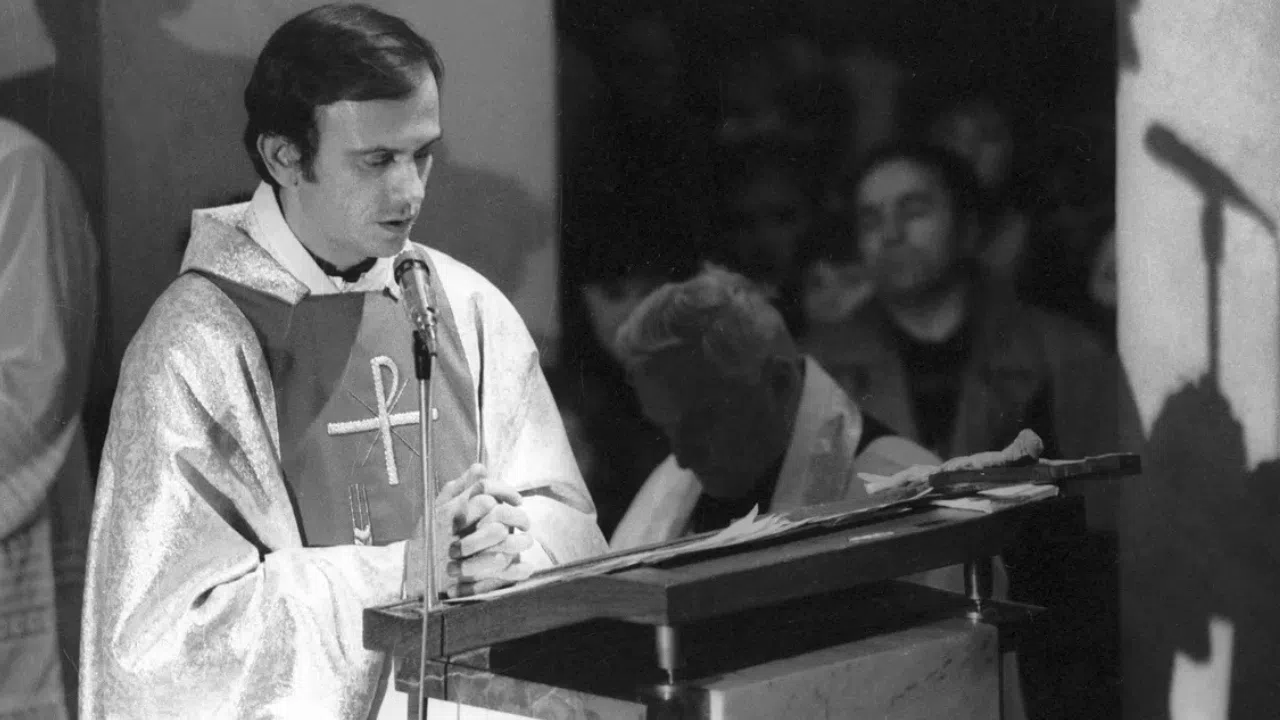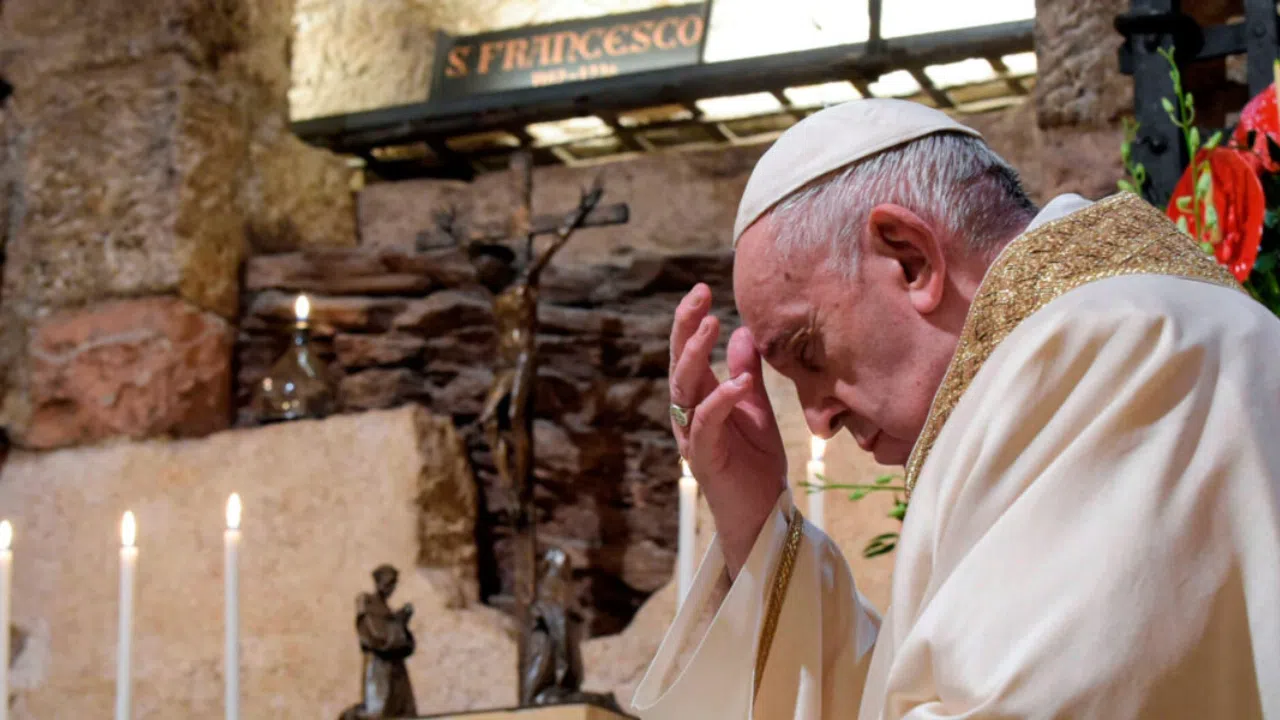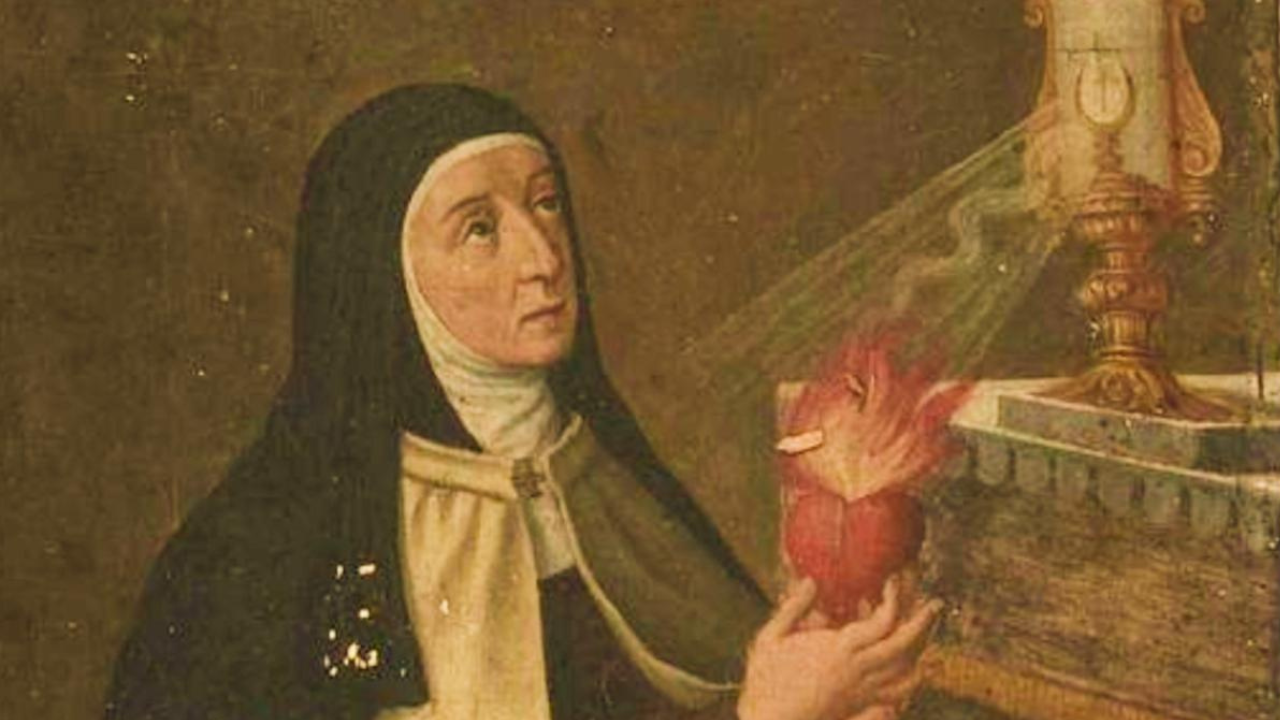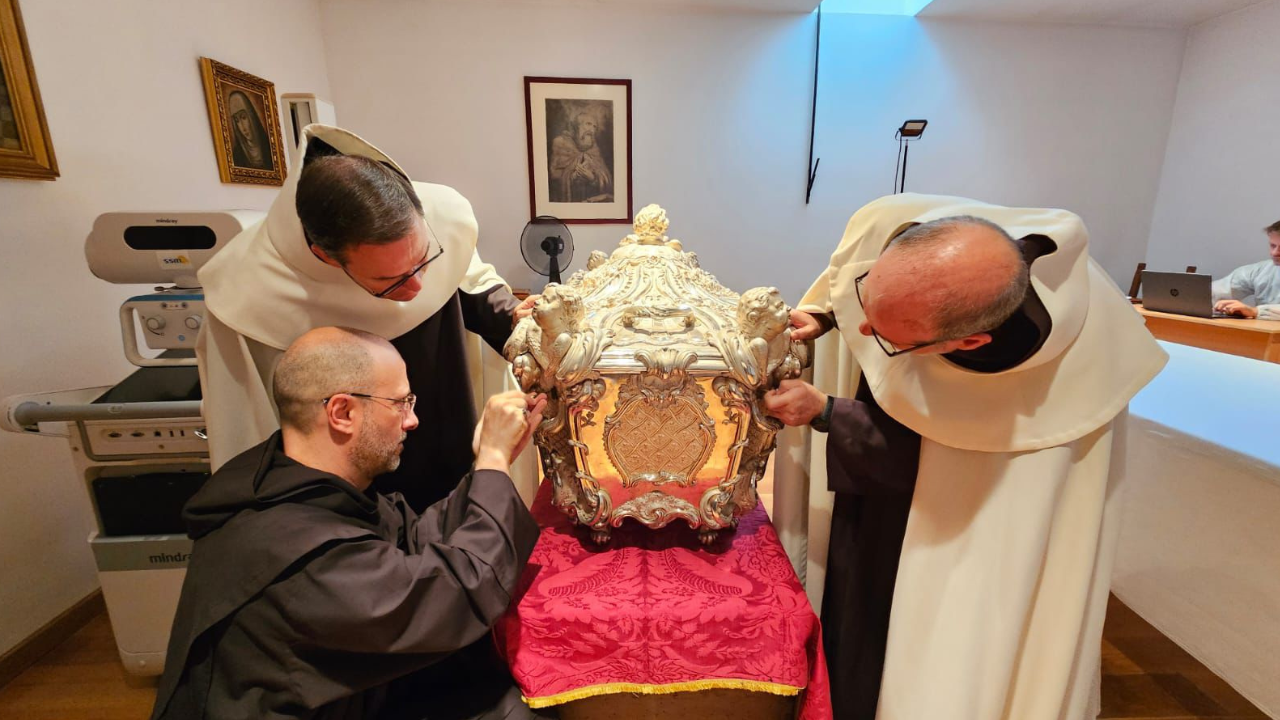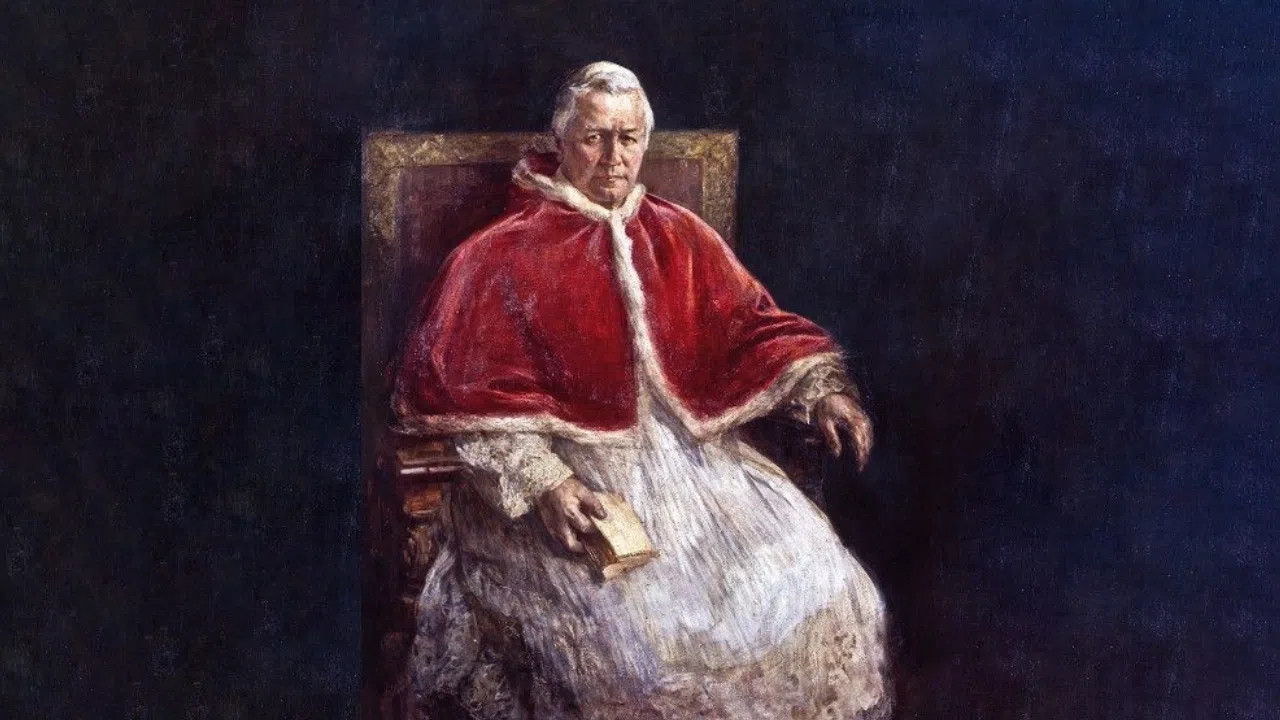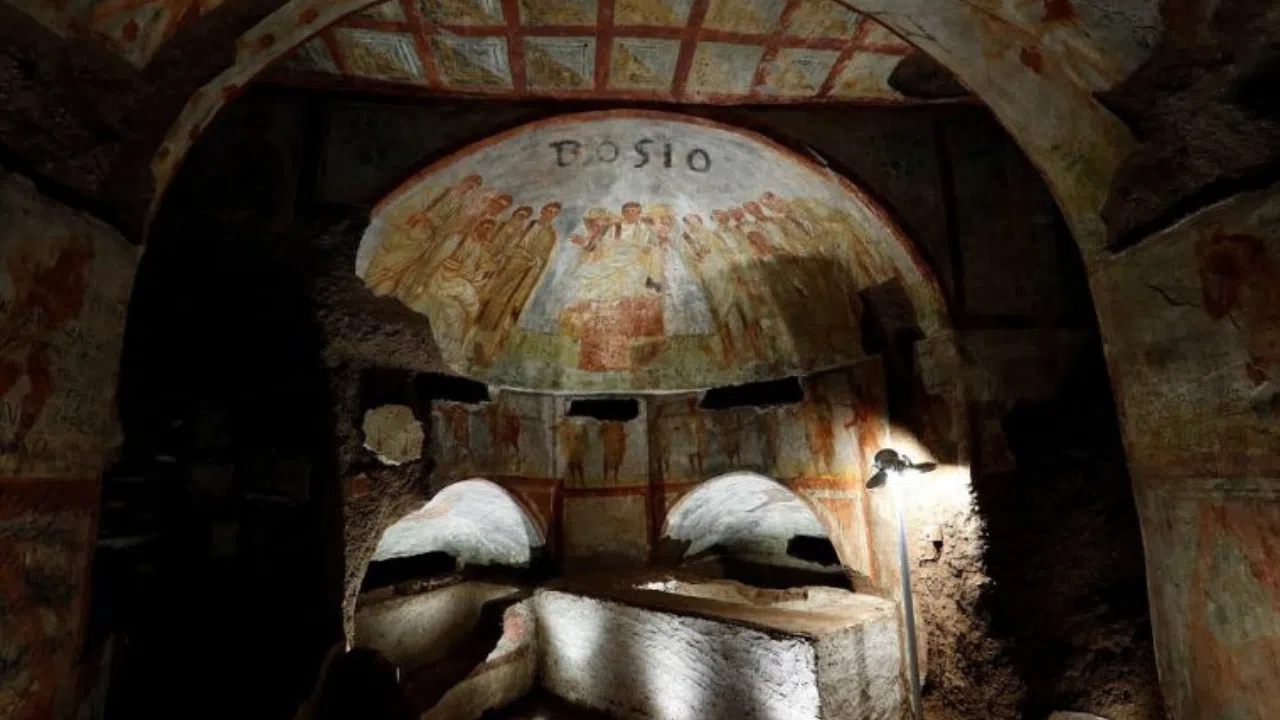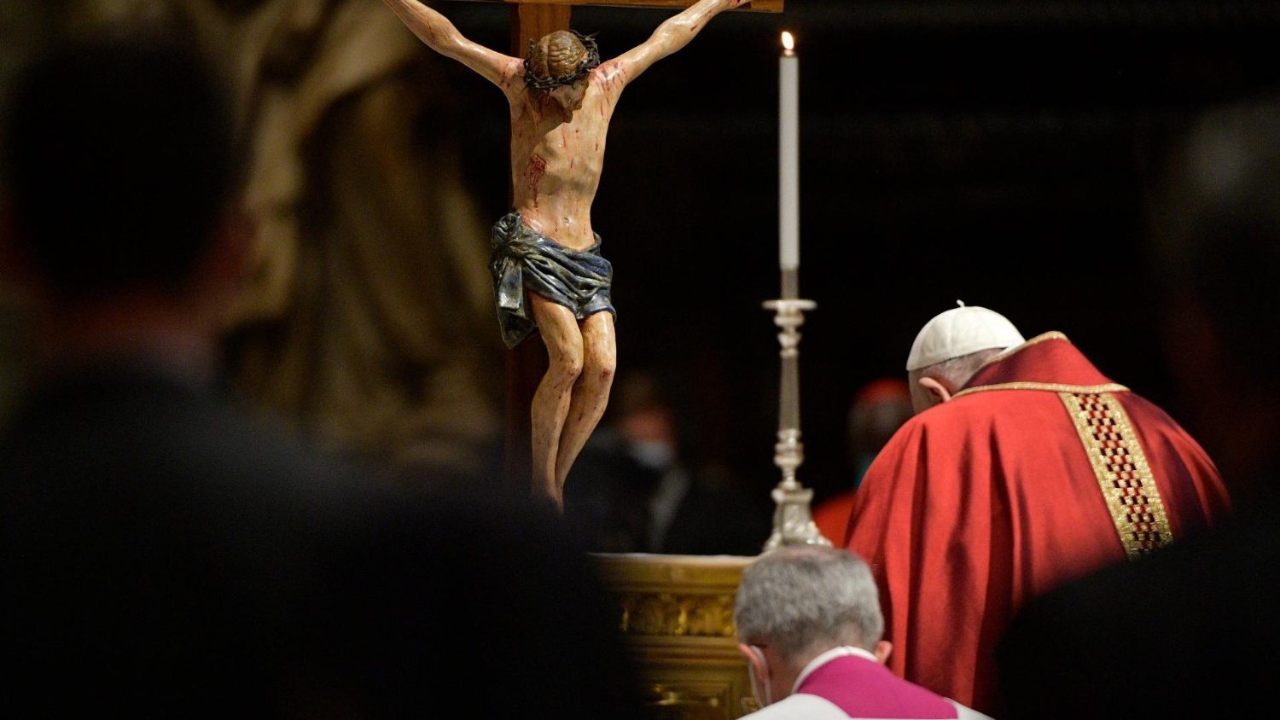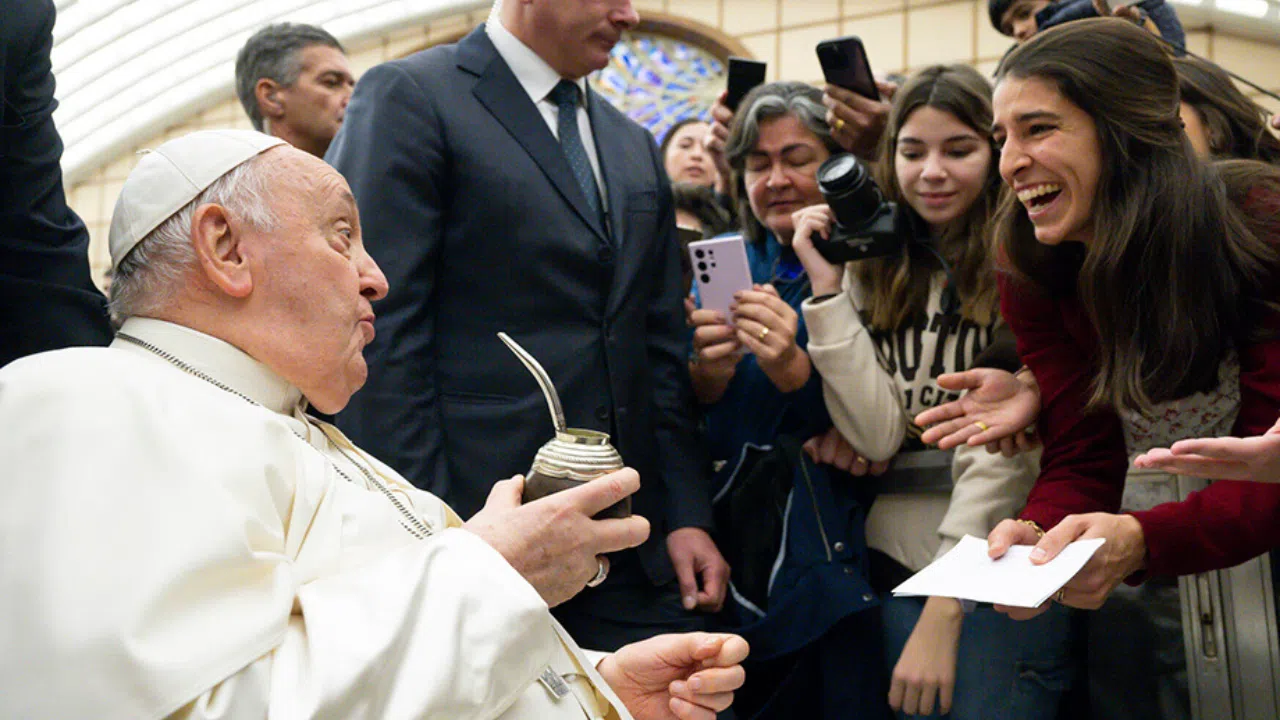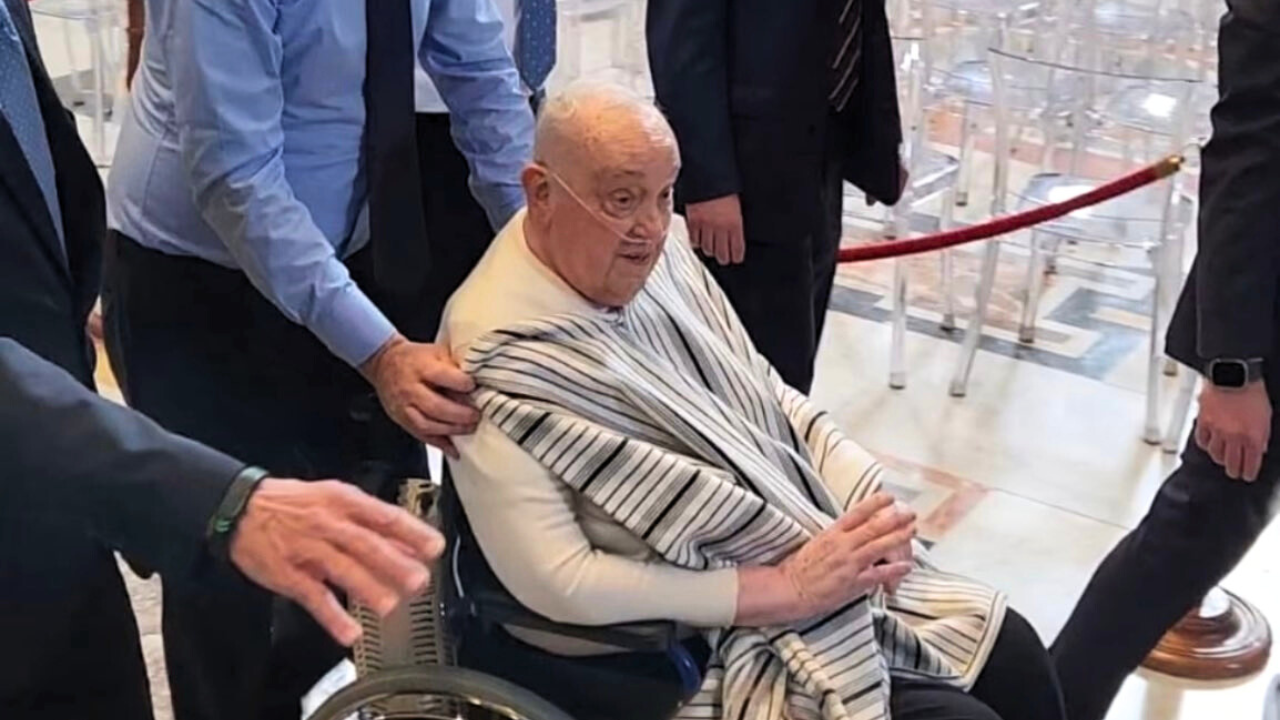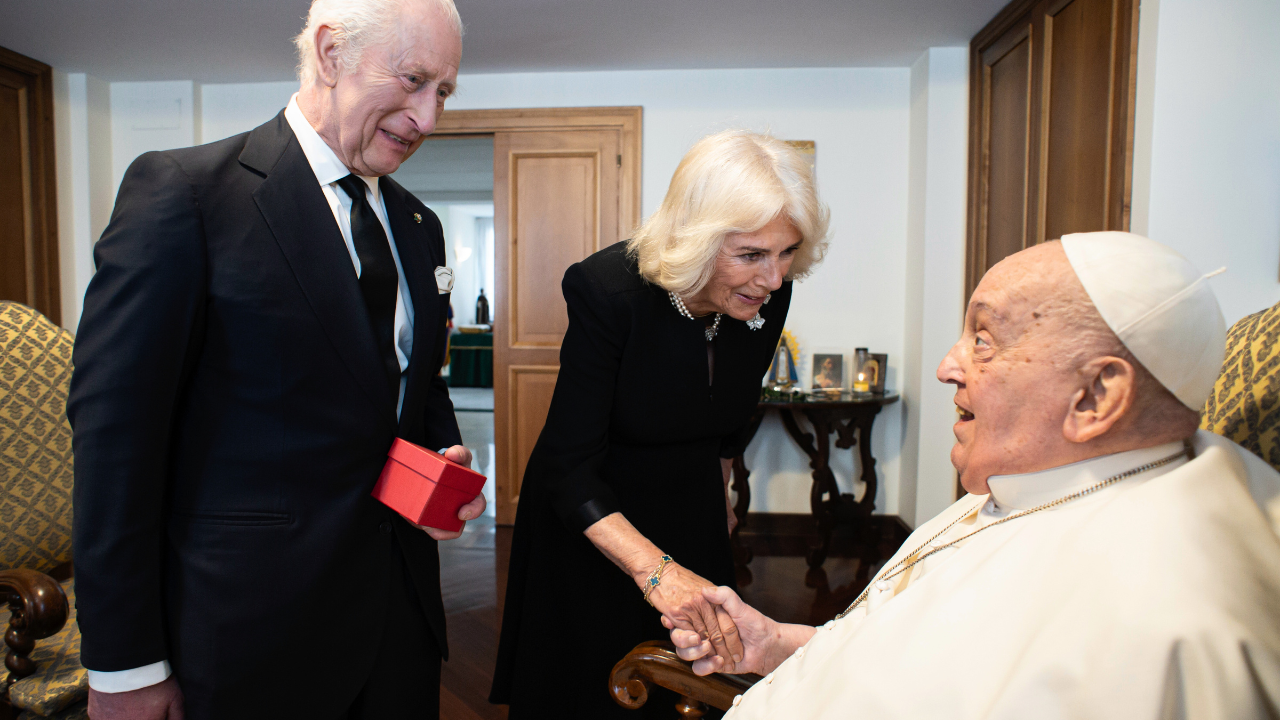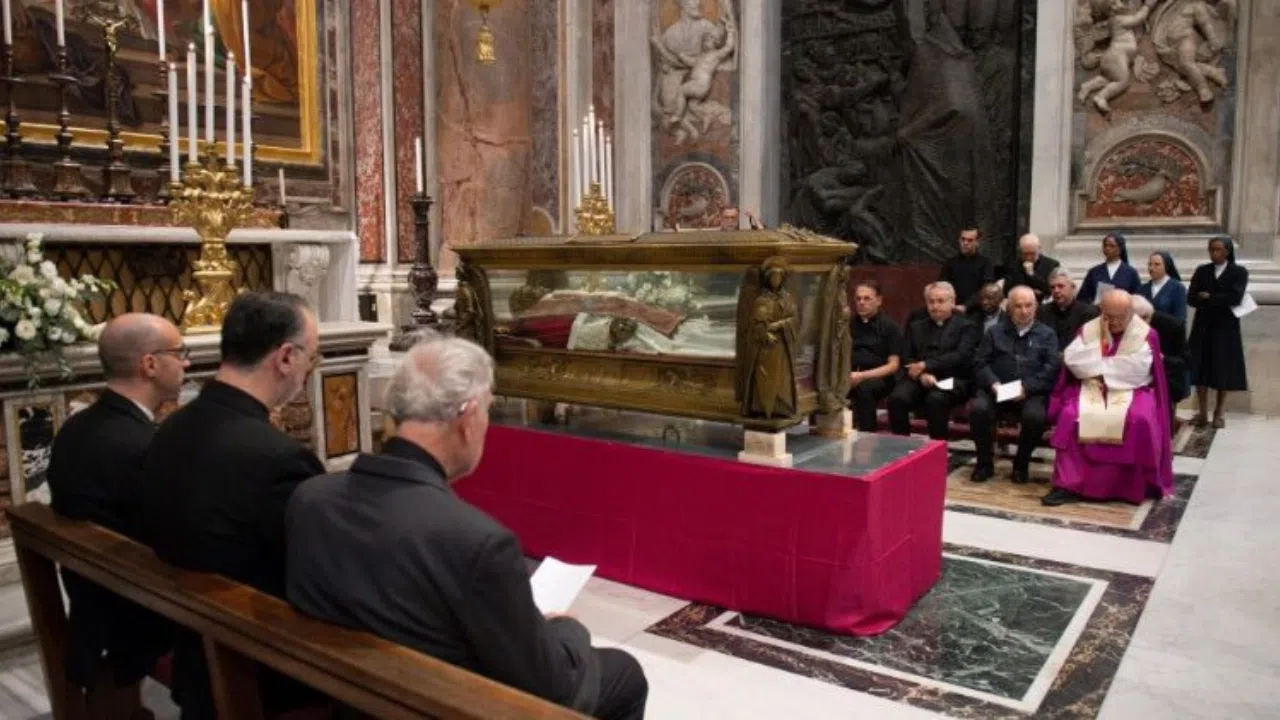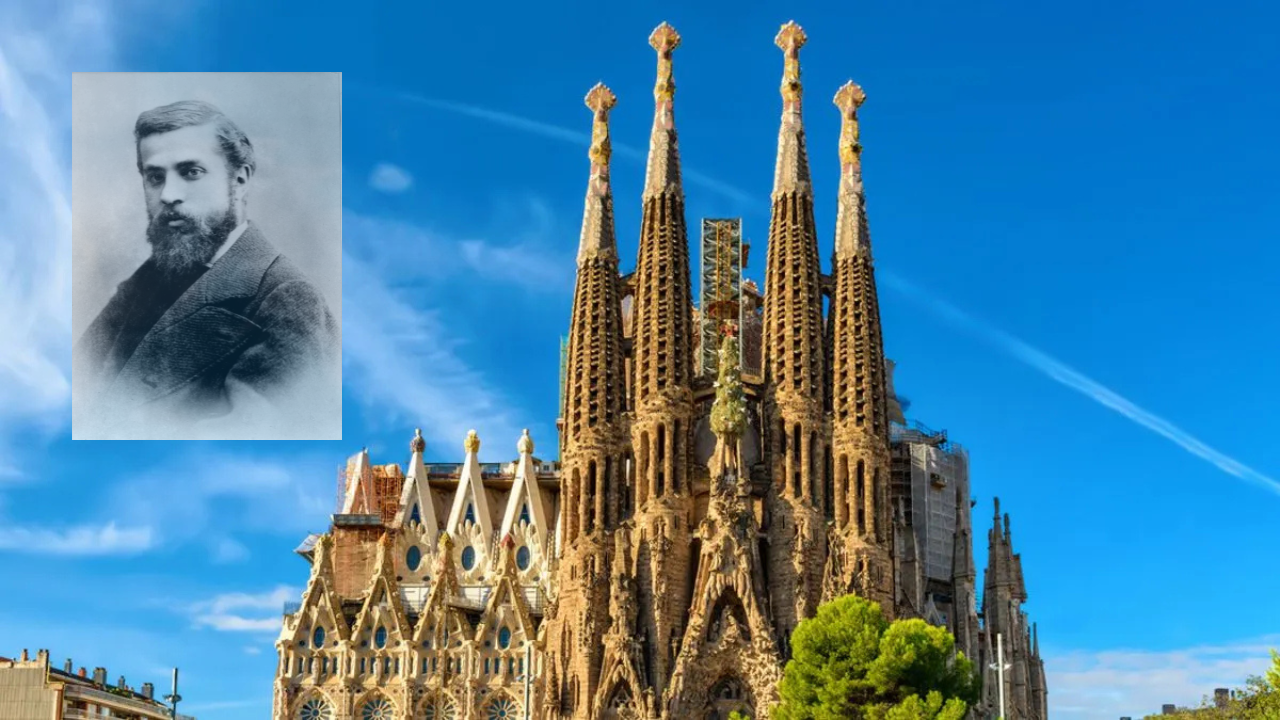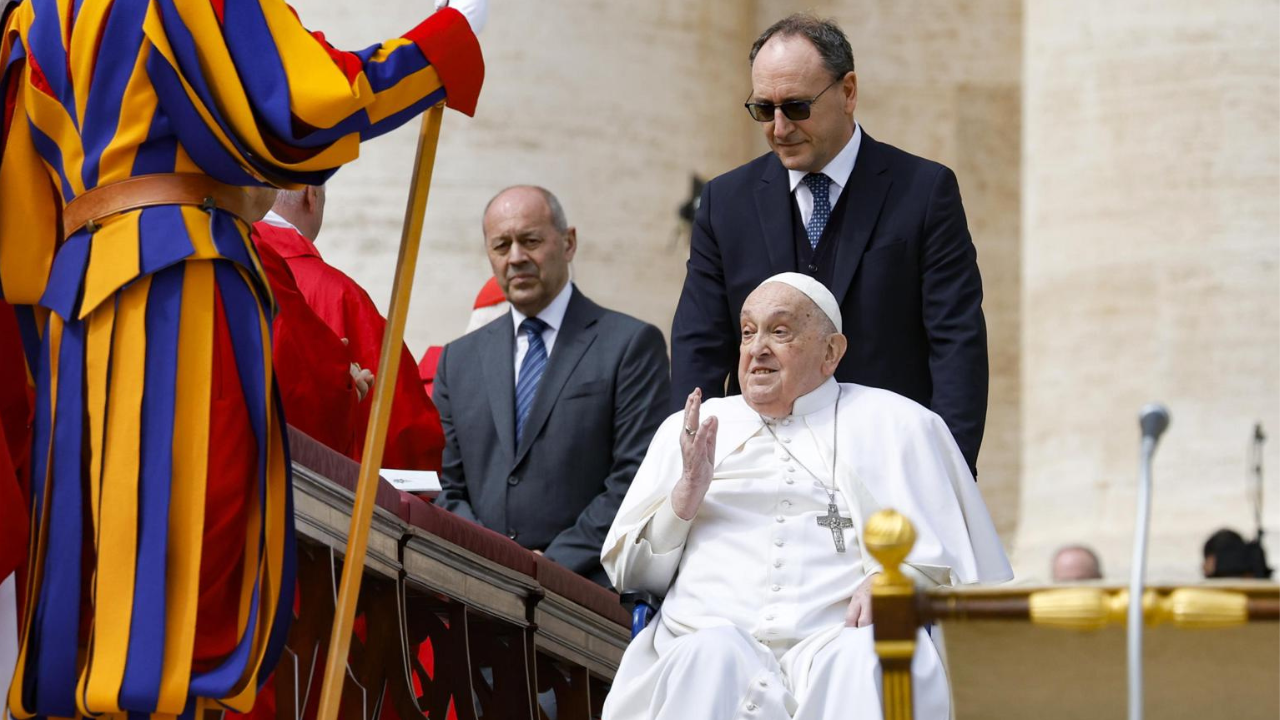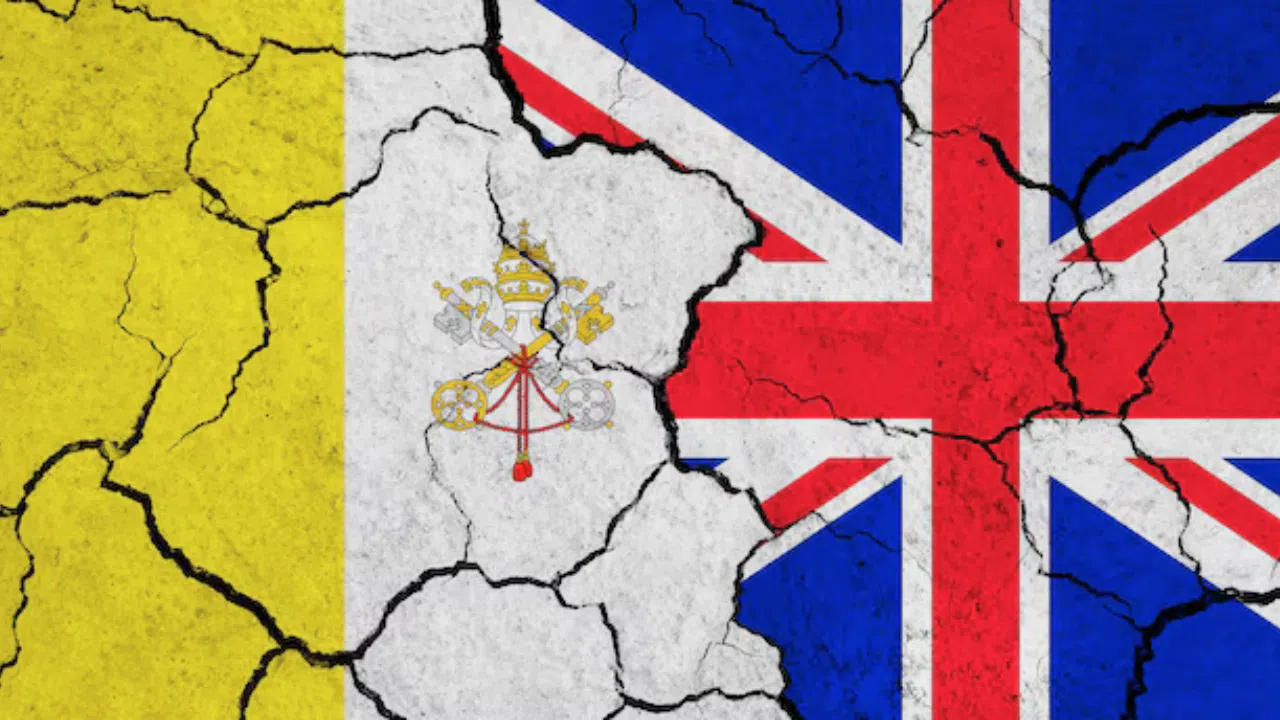More than 100 years ago, this simple room in what is now the International College of the Conventual Franciscans in Rome marked one of the most important moments in St. Maximilian Kolbe's life, when he was a student.
Here, he and six fellow friars founded the Militia of the Immaculata, also known as the Knights of the Immaculata.
RAFFAELE DI MURO
Conventual Franciscan Friars Minor
“They were here, exactly where I'm sitting. The image of Our Lady of the Immaculata was at the center, next to two candles. The seven were here all around. They founded the Militia of the Immaculata during a very difficult moment for the Church and, I would say, for all humanity. It was in the middle of the First World War, a very dramatic period.”
The portraits of St. Maximilian Kolbe and his companions watch over the room where on Oct. 16, 1917, they fulfilled their desire to help the Church through prayer and evangelization, with the help of Our Lady.
RAFFAELE DI MURO
Conventual Franciscan Friars Minor
“During this period, something very painful for Rome and all Catholics happened. There were continuous attacks against the pope, against the Church. They weren’t military attacks, but continuous protests that even reached the Vatican. The pope and the Church were being threatened.”
This room contains what could be considered a treasure: one of the few first-class relics of the Franciscan saint.
RAFFAELE DI MURO
Conventual Franciscan Friars Minor
“The relics are St. Maximilian’s strands of hair. Some might wonder how it’s possible that we have them, since his body was burned after he died in Auschwitz. It turns out that before he died, a friar cut his hair and his long beard. He kept them because he was aware of St. Maximilian’s holiness.”
These relics are preserved along with a Franciscan habit worn by the founder of the Militia of the Immaculata during his time in Rome.
Many people consider St. Maximilian Kolbe one of the heroes of Auschwitz, because he carried a message of love in the midst of a storm, choosing immediate death to save the life of a father of a family.
Daniel Díaz Vizzi
Translation: CT
